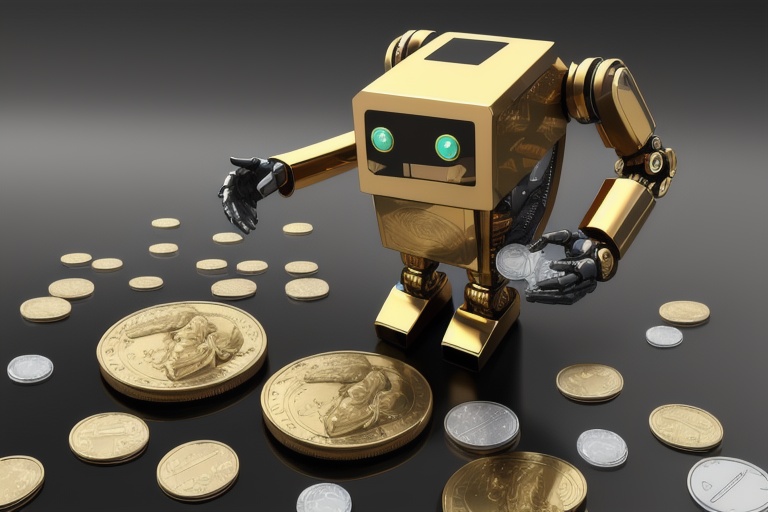Artificial Intelligence (AI) has swiftly transitioned from a figment of science fiction to a commanding presence in our everyday existence. It challenges us to consider its role in tomorrow's world, inviting a critical evaluation of its capabilities compared to the human intellect. This discourse ventures into the transformative potential of AI in the work landscape and economy, probes the distinctions between AI and human cognition, and addresses the moral quandaries tied to AI usage.
Artificial Intelligence (AI) has swiftly transitioned from a figment of science fiction to a commanding presence in our everyday existence. It challenges us to consider its role in tomorrow's world, inviting a critical evaluation of its capabilities compared to the human intellect. This discourse ventures into the transformative potential of AI in the work landscape and economy, probes the distinctions between AI and human cognition, and addresses the moral quandaries tied to AI usage.
AI embodies sophisticated computer systems instilled with cognitive capacities that mirror the human thought process, such as analytical prowess, resolution-making, and the enhancement of efficiency. It stands on the bedrock of human-derived insights, transmuted so that computers can decode and engage in tasks that span a gamut from the elementary to the intricate. This pervades sectors like robotics, regulatory mechanisms, computerized perception, planning, and data extraction.
Conversely, the crux of human intelligence is knitted from our genetic fabric, nurtured through upbringing, and honed by experiencing a diverse array of scenarios and atmospheres. It taps into a person's autonomy to mold their surroundings via the application of knowledge acquired over time. The human intellect brandishes a vast array of cognizance, ranging from specialized talents to soft skills like negotiation and fostering interpersonal relationships.
Examining the Contrasts: Artificial vs. Human Intelligence
The journey of human intelligence is a tale of innate cognitive evolution nurtured through the interplay of biology and environment. In stark contrast, AI's development pays homage to technological forerunners such as Norbert Wiener, known for integrating feedback principles into mechanized systems.
While human intelligence is designed to amalgamate cognitive operations for acclimation to novel situations, AI's goal is to forge computing systems capable of mimicking human activities and executing tasks with a semblance of human thought.
In terms of functionality, humans harness their brain's storage and processing capabilities, along with an array of cognitive skills. AI, however, is dependent on the digestion of data and instruction sets for functionality.
AI has proven to have a considerable edge over humans concerning the velocity of informational processing. Where the human mind may employ minutes to unravel a mathematical conundrum, AI could breeze through multiple problems in the span of a minute.
The learning prowess of human intelligence is cultivated through lived experiences, whereas AI's learning is a function of data exposure and methodical practice. Notably, AI has not mastered the art of abstract reasoning or assimilating wisdom from previous experiences in the way humans have.
Decision-making within the human sphere can be swayed by subjective factors that transcend quantitative analysis. AI, in stark contrast, maintains an unyielding objectivity, anchoring its choices on empirical data.
Humans, while insightful, are susceptible to errors, sometimes neglecting finer points. AI, instantiated on a foundation of updatable algorithms, boasts a consistency that yields accurate outcomes.
Adjusting to shifts in conditions is a hallmark of human adaptability, endowing us with the prowess to thrive across varied activities. AI, alternatively, may require a prolonged adaptation phase when faced with unforeseen changes.
Multi-tasking calls for human discretion and the capacity to balance numerous undertakings effectively. AI, constrained by design, typically approaches tasks sequentially, learning and optimizing them one after another.
Social networking underscores human aptitude for interaction and forming connections, with humanity reigning supreme over other social species. Despite advancements, AI lacks the nuanced complexity to mirror human social intricacies fully.
The Future Workforce and AI's Ethical Implications
With the relentless encroachment of AI into professional sectors and personal spheres alike, it is imperative to recognize both the promise it holds and the fronts where it falls short. While AI shines in its processing prowess and faultless precision, the human spirit champions adaptability, imaginative flair, and the essence of social complexities.
The persistent dialogue contrasting AI with human cognition points to the profound reverberations of AI within the imminent workforce and the societal fabric at large. Distinguishing between these intellectual paradigms is pivotal for steering through the ethical mazes that accompany AI's assimilation into our existence.
As we press onward, we are committed to diving deeper into the implications and prospective landscape of AI, delving into the realms of machine learning, and the ever-evolving craft of programming. It is fundamental to remember that while AI is a robust adjunct to human competency, it is yet to replicate the unique attributes and intricacies that define our humanity.
Information for this article was gathered from the following source.




